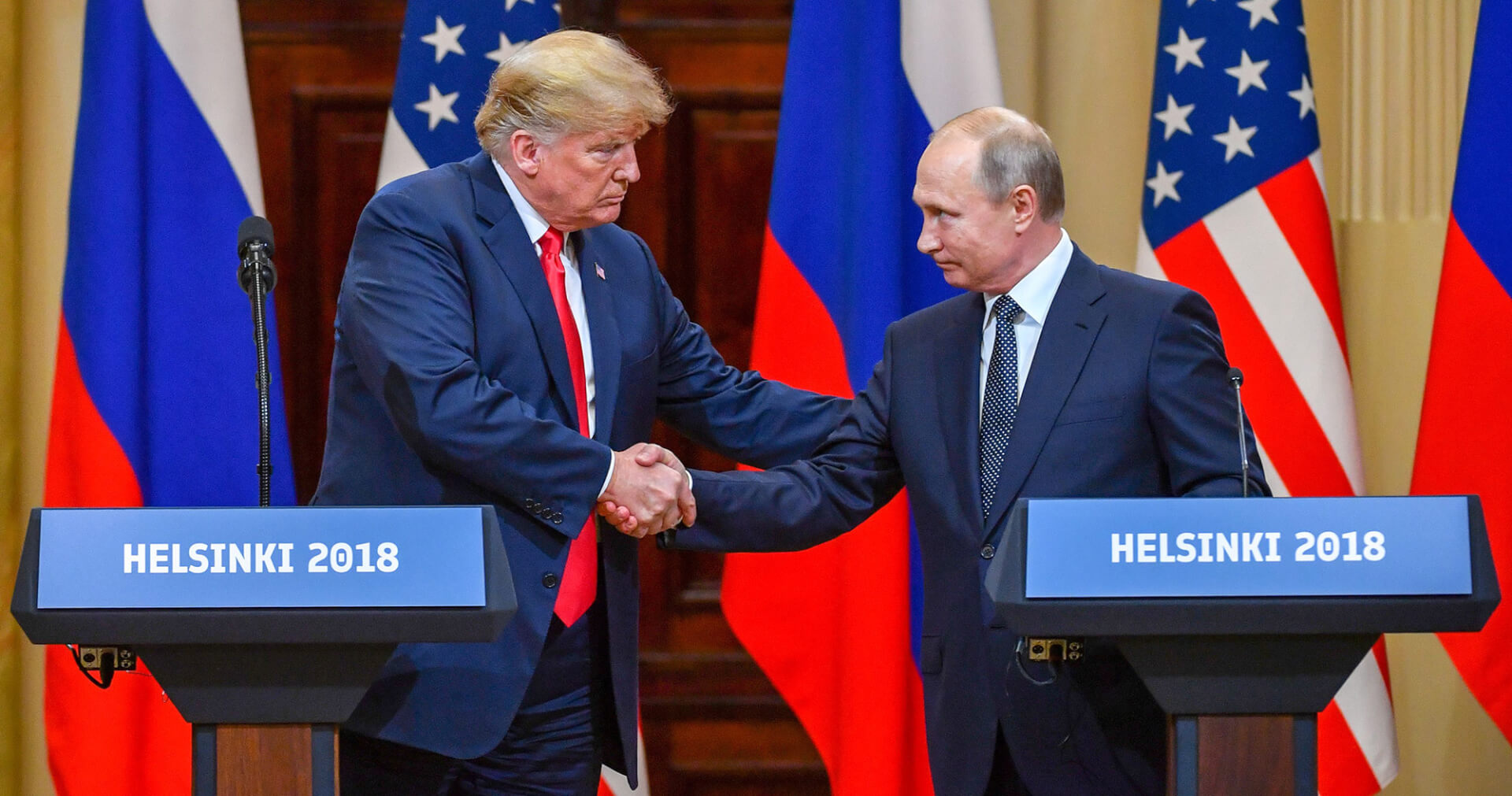A former member of the Russian intelligence agency has alleged that Donald Trump was groomed as an asset for over 40 years by Moscow, and the country’s efforts bore fruit when the former president appeared more-than-willing to parrot its anti-western propaganda.
Yuri Shvets, an ex-KGB operative is a primary source in a new book by journalist Craig Unger, titled “American Kompromat,” which digs into the details of the decades-long relationship between Trump and Russia. It also explores the KGB’s attempts in the 1980s to cultivate certain Americans as Russian assets. Speaking to The Guardian via telephone from his home in Virginia, Shvets said that the process included tapping promising individuals during the early stages of their lives when they were just students, after which they rose to prominence. “Something like that was happening with Trump,” he added.
After coming up on Russia’s radar for the first time in 1977 after his nuptials with his first wife, Ivana Zelnickova—who was from Czechoslovakia—the KGB kept an eye on Trump, a rising young businessman, as a potential asset. The agency put its idea to the test in 1987 when Trump and his wife visited Moscow and St. Petersburg for the first time. During his visit, Trump was courted by KGB officials, constantly praised and told that he should enter the world of US politics. Shvets recalled: “For the KGB, it was a charm offensive. They had collected a lot of information on his personality, so they knew who he was personally. The feeling was that he was extremely vulnerable intellectually, and psychologically, and he was prone to flattery.”
“This is what they exploited. They played the game as if they were immensely impressed by his personality and believed this is the guy who should be the president of the United States one day: it is people like him who could change the world. They fed him these so-called active measures soundbites,” he added.
And it worked. Soon after his return to the US, Trump took out a full-page ad in three major newspapers (The Washington Post, The New York Times, and the Boston Globe) calling on the country to stop defending other rich countries—an argument that would eventually become a key part of his foreign policy as president. Shvets said the ad was celebrated in Russia as a successful “active measure” executed by a new KGB asset.
“It was unprecedented. I am pretty well familiar with KGB active measures starting in the early 70s and 80s, and then afterwards with Russia active measures, and I haven’t heard anything like that or anything similar – until Trump became the president of this country – because it was just silly. It was hard to believe that somebody would publish it under his name and that it will impress real serious people in the west, but it did and, finally, this guy became the president,” he added.
Throughout his tumultuous presidency, Trump maintained that he has absolutely no ties to Russia, despite conducting at least 38 meetings with Kremlin-linked operatives. The Mueller investigation, which looked into possible Russian interference in the 2016 election, found that the president’s campaign did not coordinate with Moscow to influence the outcome of the vote. However, Shvets said that an important area had been overlooked.
“For me, the Mueller report was a big disappointment because people expected that it will be a thorough investigation of all ties between Trump and Moscow, when in fact what we got was an investigation of just crime-related issues. There were no counterintelligence aspects of the relationship between Trump and Moscow.” He added that ‘American Kompromat’ was meant to rectify this omission. “We believe that his book will pick up where Mueller left off,” he said.
Former KGB Spy Says Russia Groomed Trump as an Asset for 40 Years
Moscow’s efforts bore fruit when the former president appeared more-than-willing to parrot its anti-western propaganda.
January 30, 2021

US President Donald Trump shakes hands with Russian President Vladimir Putin at the end of their summit in Helsinki, Finland in July 2018. SOURCE: YURI KADOBNOV/AFP/GETTY IMAGES VIA CNN
